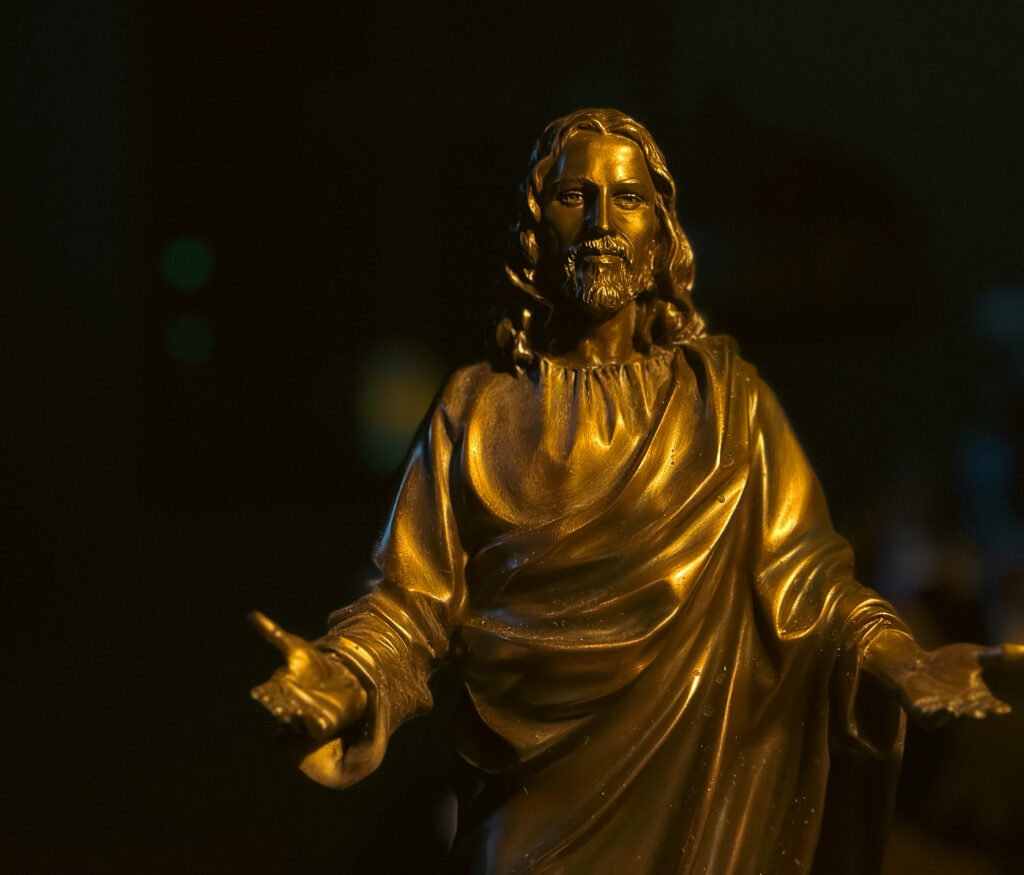
One of the elders, however, spoke to me, “Don’t cry,” he said. “Look! The lion from the tribe of Judah, the Root of David, has won the victory! He can open the scroll and its seven seals.” Then I saw…a lamb. It was standing there as though it had been slaughtered…~REVELATION 5:5-6
One of the details in Revelation that I never paid close attention to is here in these two verses. And it has huge implications.
First, just a little bit of context. John sees a scroll sealed with seven seals in the right hand of Yahweh sitting on the throne (this throne room vision began in chapter 4). A mighty angel asks if there’s anyone worthy to open it and undo its seals. The answer is: nobody in the universe is able to open it. At this John bursts into tears thinking no one can know the will of God or carry out His plans against evil which are contained in that scroll. But then one of the twenty-four elders tells John not to cry because look! the Lion of Judah/Root of David (Messiah) has conquered and can open the scroll as well as its seals. But when John turns to get a look at this fierce lion of power and majesty, he sees…a little lamb. Not only that, but it’s been slaughtered–yet still standing.
Here is the detail I never really pondered: John hears that the Lion of Judah is worthy, but he sees a slaughtered Lamb. What’s up with this sacred shapeshifting? And not only that, but the Greek word John uses for lamb here is “arnion” which is diminutive and literally “lambkin.” John uses arnion 29 times in Revelation, all referring to Jesus except for one (13:11). Aaaaand, arnion-lambkin is used only one time elsewhere in the entire New Testament, in John 21:15, and there it refers to Jesus’s followers.
What’s the significance?
John is giving a completely new conception to his readers.
John is redefining what victory looks like.
“God’s victory is won through suffering and His triumph is achieved through sacrifice. The Lamb is indeed as powerful as a Lion, but his power is exercised through what he suffers for the sake of others.”, says Professor of New Testament Craig Koester. Contrary to what many modern readers may say, John was not writing in some elaborate code to hide Jesus’s identity, he was revealing Jesus’s character. Remember, the word “revelation” means disclosure, not super secret code. (And if John was indeed writing in code, he needs to brush up his game as he gave a major spoiler alert in Revelation1:1!)
God’s kingdom is built through the self-giving sacrifice of Jesus–this is how the Lamb “conquers.” The theme of chapter 5 according to commentator G.K. Beale is: “Christ as Lion overcame by being slaughtered as a Lamb.” And don’t think for a second that this Lambkin is weak–it takes more strength than we can imagine to willingly submit to and walk into what He did for the sake of all of us. The way of the Lamb is not weakness, but strength beyond strength as we understand it, complete and perfect power (symbolized by the Lamb’s seven horns later in verse 6) . By contrast, the way of the dragon and Babylon is violence and exploitation which in the end, is pathetic and weak.
What might this mean for us today?
So back in chapters 2 and 3 in the letters to the seven churches, each message had a part towards the end which said basically that the one who conquers will receive an eternally extravagant reward in the end. For example, in the letter to the church in Laodicea, “This will be my gift to the one who conquers: I will sit them beside me on my throne, just as I conquered and sat with my father on his throne.” Conquering, according to the book of Revelation, is to remain an allegiant or faithful witness to Jesus Christ to the end, no matter how hostile the environment may become towards being such a witness. The words most used to the churches were “works” and “resilience” or we might say perseverance and endurance. Conquering, in the kingdom of God, is simply remaining faithful to Christ and absorbing whatever suffering may come as a result of that.
This is what victory looks like as John is redefining it for us here.
It does not look like crusades, conquistadors, or colonialism.
If I were a Baptist preacher obsessed with alliteration, I would say:
“In Revelation 5 we have a new Conception of Conquering! A new Paradigm of Power! And a new Vision of Victory!”
But since I’m not, I won’t.
I’ll close with some words by Scot McKnight from his new and very helpful book Revelation For The Rest Of Us which just came out last month:
Being an allegiant witness of enduring works is about the public expression and embodiment of the lordship of King Jesus.








